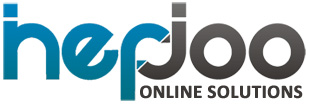
Optimizing PPC Performance: Keyword Strategy, Negative Keywords, Budget Management, RSAs, Location Targeting, Conversion Actions is an article that provides valuable insights into improving the effectiveness of pay-per-click advertising campaigns.
This comprehensive guide covers various strategies, such as keyword optimization, negative keyword implementation, and budget management techniques.
It also delves into the benefits of using responsive search ads (RSAs) and location targeting to maximize click-through rates and conversions.
With a data-driven approach and informative content, this article is a must-read for anyone looking to optimize their PPC performance.
Optimizing PPC Performance: The Importance of Keyword Optimization
Keywords drive the performance of PPC campaigns by ensuring that searchers are matched with relevant ads, making keyword optimization a crucial aspect of maximizing ad effectiveness.
Advanced keyword analysis is essential for identifying the most relevant and high-performing keywords to target. By conducting thorough research and analysis, advertisers can uncover valuable insights about search trends, user intent, and competition. This data-driven approach enables them to make informed decisions about keyword selection and bid optimization to increase ad visibility and drive more qualified traffic to their websites.
In addition to choosing the right keywords, effective negative keyword research is equally important. By identifying and excluding irrelevant search terms, advertisers can prevent their ads from appearing in front of audiences who are not likely to convert. This strategic approach helps to improve the overall quality of ad impressions, increase click-through rates, and reduce wasted ad spend.
Effective Strategies for Negative Keywords
Implementing a solid strategy for excluding unwanted searches is essential for improving ad performance. A highly effective strategy involves the refinement of negative keywords.
By carefully analyzing conversion data, advertisers can identify search terms that are not relevant to their campaigns and add them as negative keywords. This prevents their ads from showing up for irrelevant searches, saving budget and improving the overall performance of their campaigns.
Refining negative keywords allows advertisers to target their ads to a more specific and relevant audience, increasing the chances of conversions.
You can add keywords into your account at either the campaign or ad group level. Knowing where to place them is a key part of having an effective negative strategy. Broad sweeping terms for products or items you don’t sell will probably want to be added in as campaign negatives. Let’s take an example of an ecommerce website selling kitchen items. You might have a campaign for ‘Microwaves’ (seems plausible, right?). Assuming you don’t offer extended warranties, or repair services, ‘warranty’, ‘fix’, ‘repair’ might be negatives to add at the campaign level.
https://www.ppchero.com/9-tips-for-effective-negative-keyword-management/
Effective Strategies for Negative Keywords
Mastering Budget Management for PPC Success
To successfully manage their PPC campaigns, advertisers must carefully allocate their budget and regularly review performance metrics to ensure optimal results. Here are three advanced budgeting techniques and strategies that can help advertisers master budget management for PPC success:
- Optimize budgets regularly: By analyzing conversion data and performance metrics, advertisers can allocate more budget to better-performing campaigns, maximizing their return on investment.
- Consider exceptions for specific campaigns: While it’s important to optimize budgets, advertisers should also consider exceptions for branding campaigns or campaigns with high conversion rates that may not require additional budget.
- Set an account budget for structured billing: By setting an account budget with monthly invoicing, advertisers can effectively manage their overall PPC spending.
Maximizing Performance With Responsive Search Ads (RSA)
Advertisers can maximize their ad performance by utilizing Responsive Search Ads (RSAs), which allow for multiple headlines and descriptions that Google Ads AI tests and mixes to optimize results. RSAs use AI to automatically test different combinations of headlines and descriptions to determine the most effective ad variations. This allows advertisers to reach a wider audience and improve click-through rates (CTR) and conversions.
By using AI for RSA optimization, advertisers can save time and effort in manually creating and testing different ad variations. The AI technology analyzes data and performance metrics to identify the best-performing combinations, increasing the chances of driving conversions and achieving campaign goals.
Additionally, tracking and analyzing conversion data for RSAs is crucial for optimizing ad performance. By monitoring conversion actions and analyzing the data, advertisers can gain insights into which ad variations are driving the most conversions and adjust their strategies accordingly. This data-driven approach allows for continuous improvement and ensures that ad budgets are allocated effectively.
In summary, utilizing AI for RSA optimization and tracking and analyzing conversion data are essential strategies for advertisers looking to maximize their ad performance and achieve their campaign goals.
| Benefits of Using AI for RSA Optimization | Tracking and Analyzing Conversion Data for RSAs |
|---|---|
| Saves time and effort | Identifies best-performing combinations |
| Increases click-through rates | Drives conversions and achieves goals |
| Improves ad performance | Allocates ad budgets effectively |
Location Targeting: A Key Element in PPC Optimization
Location targeting plays a crucial role in optimizing the effectiveness of ad campaigns. It allows advertisers to strategically focus on specific geographic areas that align with their business goals and performance results.
Analyzing location data is an important step in this process. By analyzing location data, advertisers can gain insights into the performance of their ads in different regions. This data can help them identify high-performing areas and make informed decisions about targeting specific regions.
Targeting specific regions is another key benefit of location targeting. It allows advertisers to target specific regions where their target audience is located. This helps them reach the right people at the right time, increasing the chances of conversions and maximizing the ROI of their ad campaigns.
Additionally, location targeting enables advertisers to adjust their bids for different regions. They can increase bids for high-performing areas to ensure their ads are more visible and decrease bids for underperforming regions to optimize their budget.
Ensuring Proper Conversion Actions for Optimal Results
Analyzing and verifying proper conversion actions is essential for advertisers to achieve optimal results in their ad campaigns. With the launch of GA4 and the migration of goals from Universal Analytics, it is crucial to ensure that conversion tracking is working properly.
Advertisers should take the time to audit their conversion actions and confirm that the primary conversion actions are set up correctly. By doing so, they can gather accurate conversion data and make data-driven decisions to optimize their campaigns.
Optimizing conversion actions involves analyzing the performance of different actions and making adjustments accordingly. This process is especially important in the context of GA4 migration, as advertisers need to familiarize themselves with the new tracking system and ensure a smooth transition.
Advanced Techniques for Keyword Strategy Enhancement
Implementing advanced techniques can greatly enhance the effectiveness of a keyword strategy.
Here are three key techniques to consider:
- Advanced keyword research: Going beyond basic keyword research allows for a deeper understanding of user intent and uncovering untapped opportunities. Utilize tools like Google Keyword Planner, SEMrush, or Moz to identify long-tail keywords with lower competition and higher conversion potential.
- Long tail keyword optimization: Long tail keywords are longer and more specific phrases that target a niche audience. By optimizing your content and ads around these keywords, you can attract highly relevant traffic and increase your chances of conversion.
- Competitive analysis: Analyzing your competitors’ keyword strategies can provide valuable insights and help you identify gaps in your own strategy. Look for keywords they are targeting, their ad copy, and landing page optimization to gain a competitive edge.
Fine-tuning Negative Keyword Strategies for Improved Performance
To enhance ad performance, advertisers can refine their approach to negative keyword strategies by excluding irrelevant searches and improving campaign targeting. By implementing proactive negative keyword lists and refining exclusion terms, advertisers can ensure that their ads are displayed to the most relevant audience, increasing the chances of conversions and maximizing ROI.
Proactive negative keyword lists involve creating themed keyword lists to exclude specific themes that are not relevant to the campaign. This approach allows advertisers to be proactive in excluding irrelevant searches before they trigger their ads.
Refining exclusion terms involves regularly reviewing search terms that are triggering ads and excluding any that are not relevant. By continuously optimizing negative keyword strategies, advertisers can improve the performance of their campaigns and reach the right audience more effectively.
| Proactive Negative Keyword Strategy |
|---|
| – Create themed keyword lists |
| – Exclude specific themes |
| – Be proactive in excluding |
| – Refine exclusion terms |
Budget Optimization: Techniques and Best Practices
The advertiser can enhance their ad performance by utilizing various techniques and best practices to optimize their budget allocation and maximize their return on investment.
Here are three budget optimization techniques and budget management strategies to consider:
- Regular Budget Optimization: It is crucial to regularly review and optimize budgets to allocate more funds to campaigns that are performing well. By analyzing key metrics such as click-through rate (CTR), conversions, and website metrics, advertisers can identify areas where budget adjustments can yield better results.
- Exception Considerations: While allocating more budget to high-performing campaigns is essential, it is also important to consider exceptions. For example, branding campaigns or campaigns with high conversion rates may not require additional budget, and it may be more beneficial to reallocate those funds to other areas.
- Structured Billing: Setting an account budget for structured billing with monthly invoicing can help advertisers maintain better budget management and financial control.
Leveraging RSAs for Higher Click-through Rates and Conversions
RSAs can significantly improve click-through rates and conversions when advertisers leverage their multiple headlines and descriptions to create compelling ads. By leveraging AI optimization, advertisers can take advantage of Google Ads’ automated testing and mixing of assets to optimize ad performance.
This AI-driven approach allows for constant experimentation and refinement of ad copy to ensure maximum effectiveness. Advertisers should focus on writing compelling ad copy that grabs the attention of their target audience and entices them to click. By incorporating persuasive language, addressing pain points, and highlighting unique selling points, advertisers can create ads that resonate with their audience and drive higher click-through rates.
Additionally, regularly analyzing ad performance and making data-driven optimizations based on insights can further enhance the effectiveness of RSAs in driving conversions.
Frequently Asked Questions
How Can I Determine the Right Match Type for My Keywords?
To determine the right match type for keywords, advertisers should consider the goals of their campaign. Exact match provides precise control, while broad match allows for more reach. Testing and analyzing performance data can guide match type selection.
What Are Some Common Mistakes to Avoid When Implementing Negative Keywords?
When implementing negative keywords, it’s important to follow best practices and strategies for refining them. Avoiding common mistakes can improve ad performance by excluding irrelevant searches and maximizing budget allocation.
How Can I Effectively Allocate My Budget Across Different Campaigns?
To effectively allocate a budget across campaigns, one can optimize bidding strategies and maximize ad spend efficiency. By analyzing performance metrics and allocating more budget to better-performing campaigns, one can achieve optimal results.
What Are the Key Factors to Consider When Optimizing Location Targeting?
Consider geographic segmentation and local search optimization when optimizing location targeting. Analyze performance by location segment, adjust bids accordingly, and exclude locations where you don’t serve or find quality leads.
How Can I Track and Measure the Success of My Conversion Actions in GA4?
To track and measure the success of conversion actions in GA4, set up conversion actions and ensure proper tracking. Use GA4 reports analyzing conversion data and optimizing campaigns for improved performance.
